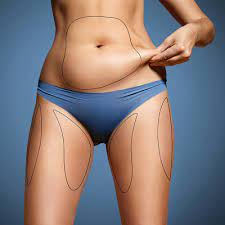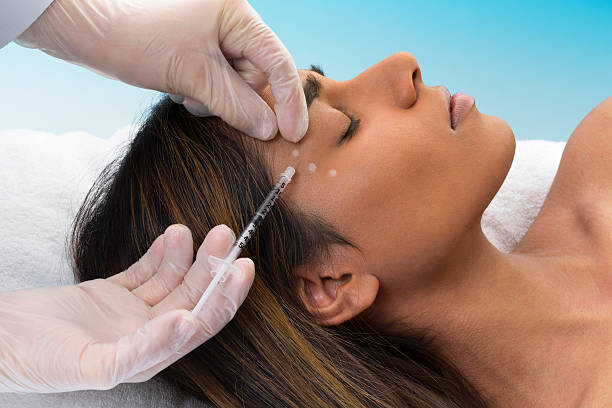 High-Converting Funnels – From Ad Click to Final Sale!
High-Converting Funnels – From Ad Click to Final Sale!
Rhinoplasty Consultation in Riyadh: What Questions to Ask
Written by Muhammad Haseeb » Updated on: June 17th, 2025

The rhinoplasty consultation is a crucial step in your journey towards a refined nose. It's your opportunity to learn about the procedure, discuss your goals, and choose the right surgeon for you. Rhinoplasty surgery in Riyadh offers world-class solutions for enhancing your facial aesthetics with expert care and precision. Here are some essential questions to ask during your consultation in Riyadh:
About the Surgeon's Expertise:
"What are your qualifications and experience in performing rhinoplasty?"
Inquire about their board certifications, years of experience, and specific training in rhinoplasty techniques.
"How many rhinoplasty surgeries do you perform annually?"
This can give you an idea of their level of experience and expertise in the procedure.
"Do you specialize in any specific types of rhinoplasty (e.g., ethnic rhinoplasty, revision rhinoplasty)?"
If you have specific concerns, such as an ethnic background or previous rhinoplasty, choose a surgeon with relevant expertise.
About the Procedure and Your Goals:
"What are my specific concerns about my nose, and how can rhinoplasty address them?"
Be open and honest about your desired outcomes, whether it's reducing the size, refining the tip, or correcting a deviated septum.
"What are the different surgical techniques available for rhinoplasty, and which one would you recommend for me?"
Understand the pros and cons of different techniques, such as open or closed rhinoplasty.
"Can you show me examples of previous patients with similar concerns to mine?"
Reviewing before-and-after photos can help you visualize potential outcomes and assess the surgeon's aesthetic style.
About the Surgical Process and Recovery:

"Where will the surgery be performed, and what type of anesthesia will be used?"
Ensure the surgical facility meets your safety standards and discuss your anesthesia options.
"What is the expected recovery timeline, and what can I expect during the healing process?"
Understand the potential for pain, swelling, bruising, and any restrictions on activities.
"What are the potential risks and complications associated with rhinoplasty?"
Discuss potential complications honestly and how they would be addressed.
About Costs and Payment:
"What are the estimated costs associated with the procedure, including surgeon's fees, facility fees, anesthesia, and post-operative care?"
Obtain a detailed cost breakdown to help you budget accordingly.
"Do you offer any payment plans or financing options?"
Inquire about available payment options to make the procedure more affordable.
About Your Overall Well-being:
"How can I prepare for surgery, both physically and mentally?"
Discuss any necessary pre-operative instructions, such as stopping certain medications or adjusting your diet.
"What are your expectations for the long-term results of rhinoplasty?"
Understand that results may continue to refine over time and that some degree of swelling may persist.
"How can I maintain the results of my rhinoplasty?"
Inquire about any necessary follow-up care and long-term lifestyle considerations.
By asking these questions and actively participating in the consultation process, you can make an informed decision about your rhinoplasty journey and choose the best surgeon to help you achieve your desired results.
Disclaimer: This information is for general knowledge and informational purposes only and does not constitute medical advice. It is essential to consult with a qualified healthcare professional 1 for any medical concerns or before making any decisions regarding your health.
Rhinoplasty, or nose reshaping surgery, is a popular cosmetic procedure that can significantly enhance your appearance. However, successful recovery is crucial for optimal results and minimizing complications. Here are some key recovery tips shared by leading rhinoplasty specialists in Riyadh:
1. Prioritize Rest and Avoid Strenuous Activity
Rest is Key: In the initial days following surgery, prioritize rest and avoid strenuous activities. This allows your body to focus on healing.
Gentle Activities: After the initial recovery period, gradually resume light activities, avoiding strenuous exercise, heavy lifting, and contact sports.
Listen to Your Body: Pay attention to your body's signals and avoid activities that cause discomfort or increase swelling.
2. Manage Swelling and Discomfort
Ice Packs: Apply ice packs to the nose and surrounding areas as directed by your surgeon to minimize swelling and discomfort.
Pain Medication: Use pain medication as prescribed by your surgeon to manage any discomfort.
Elevate the Head: Elevating the head above the level of your heart can help reduce swelling and promote drainage.
3. Protect Your Nose
Avoid Trauma: Avoid any activities that could potentially injure your nose, such as contact sports or bumping into objects.
Wear Sunscreen: Protect your nose from the sun with sunscreen to prevent discoloration of the surgical scar.
Avoid Smoking: Smoking can significantly impair healing and increase the risk of complications.
4. Follow Post-Operative Instructions
Medications: Adhere to the prescribed medication regimen, including antibiotics and pain medication.
Wound Care: Follow your surgeon's instructions for cleaning and caring for the surgical site.
Follow-Up Appointments: Attend all scheduled follow-up appointments with your surgeon to monitor your progress and address any concerns.
5. Maintain a Healthy Lifestyle
Hydration: Drink plenty of water to stay hydrated and promote healing.
Nutrition: Eat a healthy, balanced diet rich in fruits, vegetables, and protein to support the healing process.
Avoid Alcohol and Aspirin: Avoid alcohol and aspirin, as they can increase bleeding and interfere with healing.
6. Be Patient and Realistic
Healing Takes Time: Remember that full recovery can take several months, and it's important to be patient and realistic about the timeline.
Final Results: The final results of rhinoplasty may not be fully visible for several months as swelling subsides.
7. Communicate with Your Surgeon
Ask Questions: Don't hesitate to ask your surgeon any questions or concerns you may have during the recovery process.
Report Any Issues: If you experience any unexpected symptoms, such as excessive bleeding, severe pain, or difficulty breathing, contact your surgeon immediately.
By following these recovery tips and maintaining close communication with your surgeon, you can optimize your healing process and achieve the best possible results from your rhinoplasty procedure.
Disclaimer: This information is for general knowledge and informational purposes only and does not constitute medical advice. It is essential to consult with a qualified healthcare professional for any medical concerns or before making any decisions regarding your health.
Note: IndiBlogHub features both user-submitted and editorial content. We do not verify third-party contributions. Read our Disclaimer and Privacy Policyfor details.
Copyright © 2019-2025 IndiBlogHub.com. All rights reserved. Hosted on DigitalOcean for fast, reliable performance.









